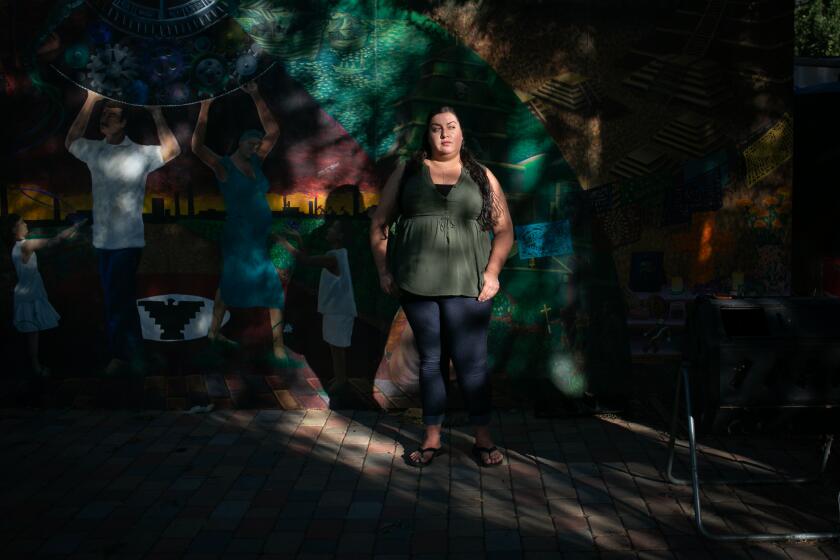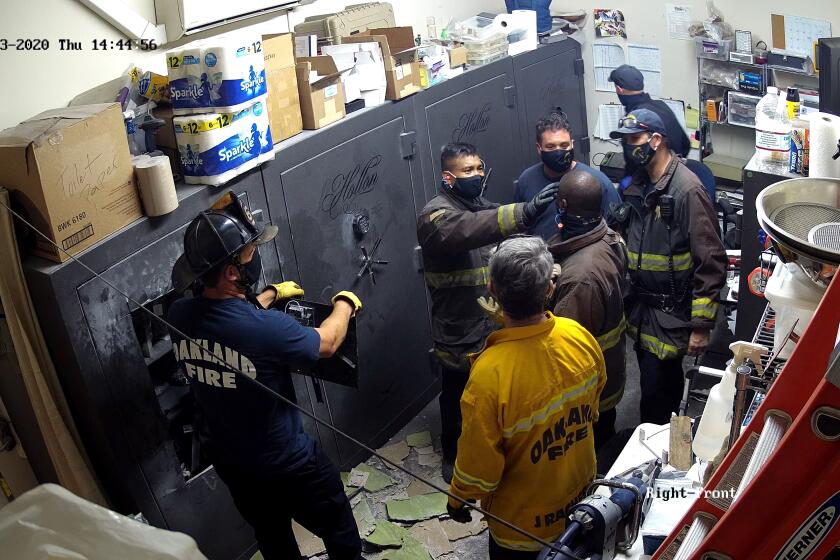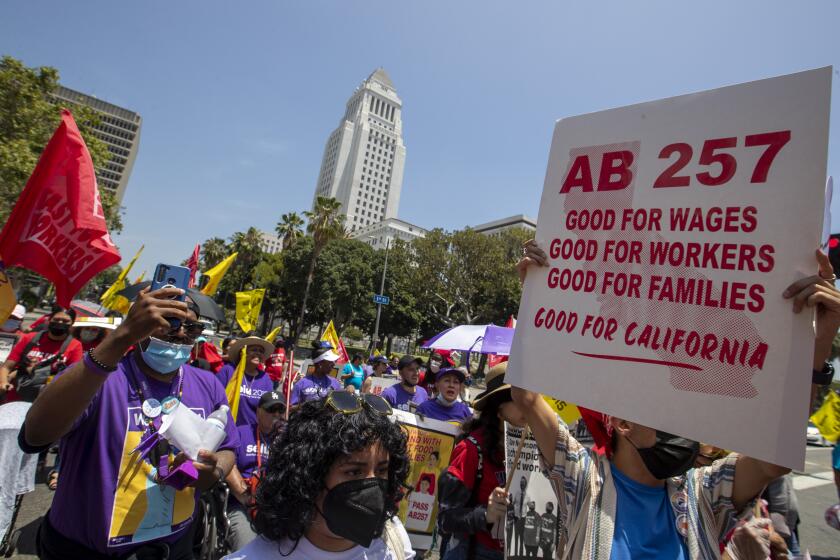California passes bill to protect workers who smoke pot off the clock

California could soon become the seventh state to ensure people won’t lose their jobs for smoking marijuana outside of work.
- Share via
California could soon become the seventh state in the United States to protect pot-smoking employees.
Assembly Bill 2188, passed Tuesday by the state Senate, would amend the state’s anti-discrimination laws and the Fair Employment and Housing Act to prevent companies from punishing employees who use cannabis outside work and test positive for the drug.
A person can test positive in a hair or urine sample, usually taken in a pre-employment drug screening, even if they are not under the influence but have smoked in recent days or weeks. The bill would not apply to other tests that might determine whether an employee is currently high.
The bill now heads to Gov. Gavin Newsom’s desk, and he has until the end of September to decide whether to sign it into law. If signed, the law would take effect Jan. 1, 2024.
More than 30,000 Californians are stuck with felonies, misdemeanors and other convictions on their records that should have been wiped ‘automatically.’
Currently, six other states — Connecticut, Montana, Nevada, New Jersey, New York and Rhode Island — have enacted laws that protect employees who smoke marijuana at home and while off the clock.
Lab drug screenings typically take a sample of a person’s urine or hair follicles and are screened for THC, the main psychoactive compound in weed. These metabolites can stay in a person’s system for days — or even weeks, for heavy smokers — meaning people can test positive on a screening even if they’re not high when testing, according to medical experts.
The new law would prohibit employers from punishing or discriminating against employees who fail such tests. However, it does not prevent them from using other types of tests, such as saliva tests, to try to determine whether an employee is high at the moment.
Certain exclusions would also still apply, such as employees who work in building and construction trades, federal contractors and employees who receive federal funding, as well as federal licensees who are required to maintain drug-free workplaces.
The Zide Door Church of Entheogenic Plants sued Oakland, the Oakland Police Department and an officer, alleging they violated its 1st and 14th amendment rights.
Assemblymember Bill Quirk (D-Hayward), the bill’s author, emphasized that the law would not allow employees to show up to work under the influence.
Despite being the first state to legalize medicinal marijuana in 1996 and one of the first states to legalize recreational cannabis in 2016, California has up until now done little to protect workers who smoke marijuana off the clock and at their leisure.
In an open letter to lawmakers, the California Chamber of Commerce said it opposed the legislation, calling the bill a “job killer” because it would “create an unprecedented, protected class for marijuana users and undermines employers’ ability to provide a safe and drug-free workplace” under state law.
“Put simply: marijuana use is not the same as protecting workers against discrimination based on race or national origin,” the letter states.
But labor unions, such as the United Food and Commercial Workers Local 324, argue that employees should not be punished for what they do outside their job — especially if it’s legal.
“Using outdated cannabis tests only causes employees to feel unsafe and harassed at work, it does not increase workplace safety,” said Matt Bell, secretary-treasurer for the UFCW 324.
Under the Fast Food Recovery Act, a council would be authorized to set the minimum wage and regulate working conditions for fast-food workers.
More to Read
Sign up for Essential California
The most important California stories and recommendations in your inbox every morning.
You may occasionally receive promotional content from the Los Angeles Times.














